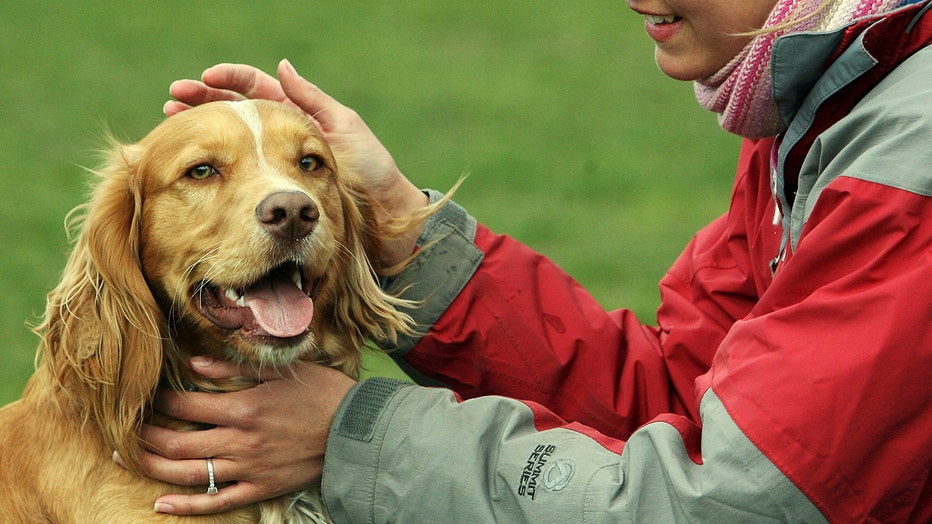Study reveals best way to speak to your dog

AKC top dog: French Bulldog knocks off Labrador Retriever for most popular breed | LiveNOW from FOX
After three decades, the French Bulldog has beat out Labrador Retriever for the most popular dog breed, according to the AKC's rankings. Brandi Hunter Munden with the American Kennel Club joined LiveNOW's Lexie Petrovic to discuss the rise in interest in Frenchies. Subscribe to LiveNOW from FOX! https://www.youtube.com/livenowfox?su... Where to watch LiveNOW from FOX: https://www.livenowfox.com/ Follow us @LiveNOWFOX on Twitter: https://twitter.com/livenowfox Raw and unfiltered. Watch a non-stop stream of breaking news, live events and stories across the nation. Limited commentary. No opinion. Experience LiveNOW from FOX.
BUDAPEST, Hungary - If you’ve ever heard a pet owner using "baby talk" to address their four-legged friend, it turns out, there’s science to support that type of dialogue with dogs.
Hungarian researchers recently discovered that dogs respond more to a sing-songy voice, referred to as exaggerated prosody.
Anna Gergely, the study's lead researcher, said her research group has been studying dog-directed speech since 2015.
The team conducted a series of brain scans on trained dogs who listened to adult-directed speech from men and women who were all unfamiliar with the animal.

Dog owner strokes her dog in Battersea Park on April 4, 2007 in London, England. (Credit: Matt Cardy/Getty Images)
The study, published in Communications Biology, found that this same sort of speaking style used with young children is effective with dogs – even more so in the furry friends who were found to be more sensitive to speech.
"Based on our current study we can say that a voice with higher and more variable pitch has more potential to engage a dog during communicative interactions," Gergely told FOX.
The study also discovered that a man’s best friend seems to prefer the voices of women and that dog brains respond more to speech directed to them.
RELATED: TSA’s 2023 cutest canine announced: Meet Dina
"Such neural sensitivity to speech prosody was found in human infants before, but this is the first time to show such neural sensitivity in a non-human species," Gergely continued. "This suggests that dog- and infant-directed prosody, or at least female prosody, has the potential to engage and call the attention of canine partners, and we provided evidence for this phenomena at a neural level."
The researchers noted limitations of using specifically trained dogs who were able to voluntarily stay still in the scanner. They also said future studies with more dog breed types, varying broadly in genetic ancestry, breed function and head shape, may be informative, as well.
"I think domestic dogs are special!," Gergely concluded, adding, "They show infant-like social skills in many aspects despite the fact that dogs have smaller brains and really different species-specific communicative signals! Moreover, dogs show infant-like attachment styles to their handlers and they can form this attachment over and over again with different owners if needed. They are able to learn socially both from dogs and from humans."
This story was reported from Los Angeles. FOX Edge contributed.

